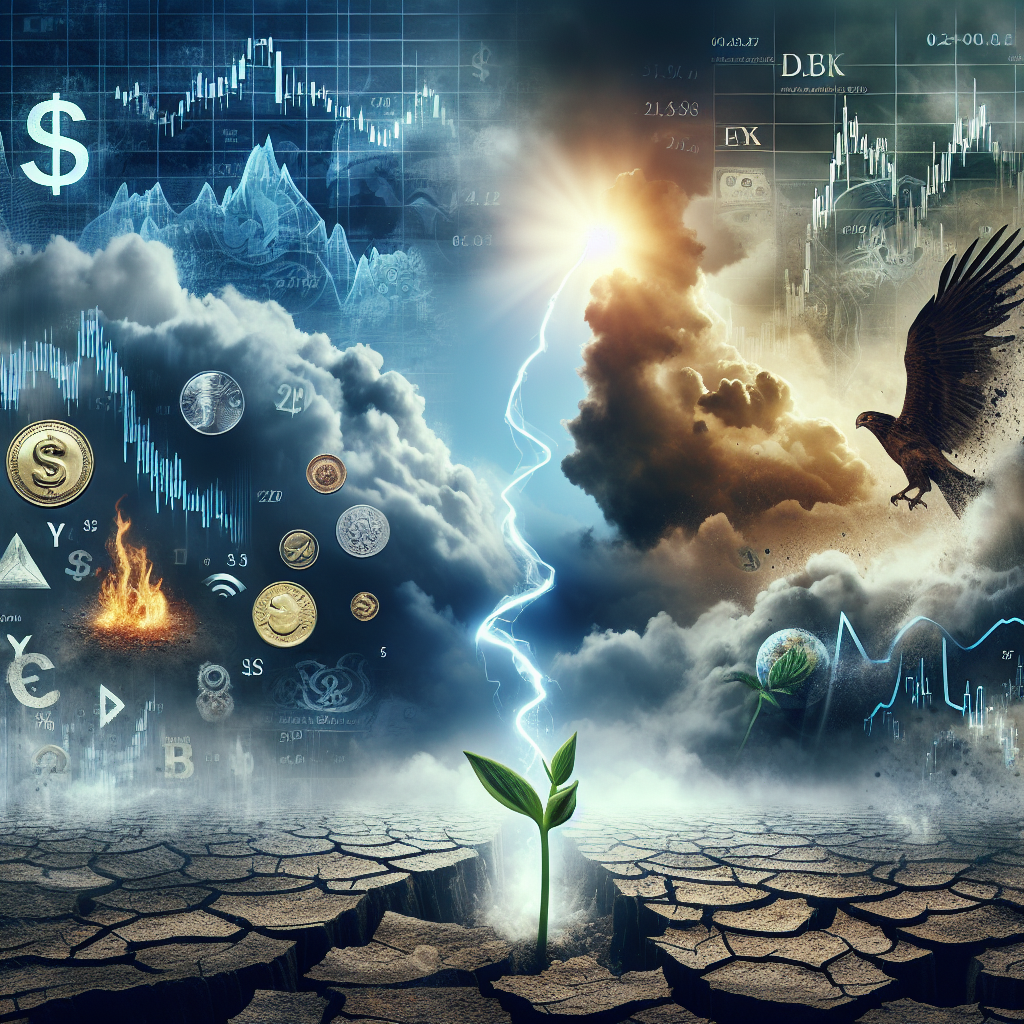Introduction
Economic uncertainty is a standard feature of market dynamics and has a profound impact on business strategies and financial forecasts. Crises, whether financial collapses, global pandemics, or geopolitical instability, often create challenges for organizations but can also pave the way for new opportunities. In this article, we’ll explore the shifts in market trends due to economic uncertainty, identify potential opportunities to pursue, and provide actionable strategies to thrive amid such challenges.
The Nature of Economic Uncertainty
Economic uncertainty can arise from a variety of factors, including:
- Fluctuations in the stock market
- Changes in government policies
- Global events like pandemics or wars
- Natural disasters
- Technological changes that disrupt traditional industries
These factors can cause volatility in financial markets, impacting consumer confidence and spending patterns. Companies must be agile to adapt to these unpredictable changes.
Shifts in Consumer Behavior
One significant impact of economic uncertainty is the shift in consumer behavior. Here are some of the key trends:
1. Increased Demand for Essential Goods
In times of uncertainty, consumers tend to prioritize essential goods over luxury items. This trend has been particularly evident during economic downturns and global crises.
2. Focus on Health and Wellness
There is a growing emphasis on health and wellness products. Consumers are increasingly willing to invest in products that promote physical and mental well-being, such as fitness equipment, organic foods, and mental health apps.
3. Rise of E-commerce
The pandemic accelerated the trend towards online shopping, and this transformation is likely to persist. Businesses must optimize their online presence to cater to the growing number of consumers preferring to shop from home.
Industry-Specific Impacts
Various industries are impacted differently during times of economic uncertainty. Here’s a closer look at a few sectors:
1. Technology
Increased remote work due to economic crises has led to a surge in demand for technology solutions. Companies specializing in cloud computing, cybersecurity, and collaborative tools have seen significant growth opportunities.
2. Healthcare
The healthcare industry, particularly telehealth services, has expanded as consumers and practitioners seek safer and more efficient care options. The trend towards digital health solutions is set to continue.
3. Tourism and Hospitality
This sector experiences the most volatility during economic uncertainties. However, as travel restrictions ease, innovation in safety protocols and personalized experiences could create a comeback.
Emerging Opportunities in Economic Crises
While crises present substantial challenges, they can also create new avenues for growth. Here are some emerging opportunities:
1. Innovation and Adaptation
Organizations pivoting to innovate and adapt their business models will not only survive but thrive. This includes the development of new products, services, or methodologies that align with shifting market needs.
2. Sustainable Practices
Consumers are increasingly supporting businesses that prioritize sustainability. Companies focusing on environmentally friendly practices may gain a competitive edge in uncertain times.
3. Focus on Local Markets
Global supply chains have faced disruptions, prompting businesses to focus on local markets and suppliers. This trend could strengthen community ties and reduce dependency on international logistics.
Navigating Economic Uncertainty: Strategies for Businesses
1. Conduct Market Research
Staying informed about market trends and consumer preferences is crucial. Conduct regular market research to adapt your strategy based on current conditions.
2. Diversify Revenue Streams
Businesses should consider diversifying their revenue streams to mitigate risks. This could involve exploring new markets, products, or business models.
3. Invest in Technology
Embrace technology to streamline operations, improve customer experience, and enhance data analysis. This can give businesses a competitive edge in uncertain times.
Conclusion
In an ever-changing economic landscape, organizations that navigate periods of uncertainty with adaptability and foresight will emerge stronger. While crises may present immediate challenges, they are also breeding grounds for innovation and opportunity. By understanding market trends, consumer behaviors, and industry-specific impacts, businesses can position themselves to thrive. Emphasizing innovation, sustainability, and local engagements can help create resilient enterprises in the face of adversity.
FAQs
What is economic uncertainty?
Economic uncertainty refers to unpredictable factors that can affect the economy, such as market fluctuations, political instability, and natural disasters, often leading to volatility in consumer behavior and business performance.
How can businesses benefit from crisis situations?
Businesses can leverage crisis situations by seeking out innovation opportunities, adapting their models for sustainability, and responding to changing consumer needs effectively.
What are some strategies for navigating economic uncertainty?
Strategies include conducting market research, diversifying revenue streams, and investing in technology to improve efficiency and responsiveness to market changes.
How can consumer behavior change during economic uncertainty?
Consumers tend to prioritize essential goods, health and wellness products, and shift towards online shopping during uncertain times, impacting retail dynamics significantly.
TIP
Stay agile and informed. Regularly revisit your business strategies and remain responsive to changes in the market, consumer preferences, and external factors. Adaptability will enhance your resilience in uncertain economic landscapes.
#Crisis #Opportunity #Market #Trends #Emerging #Economic #Uncertainty

